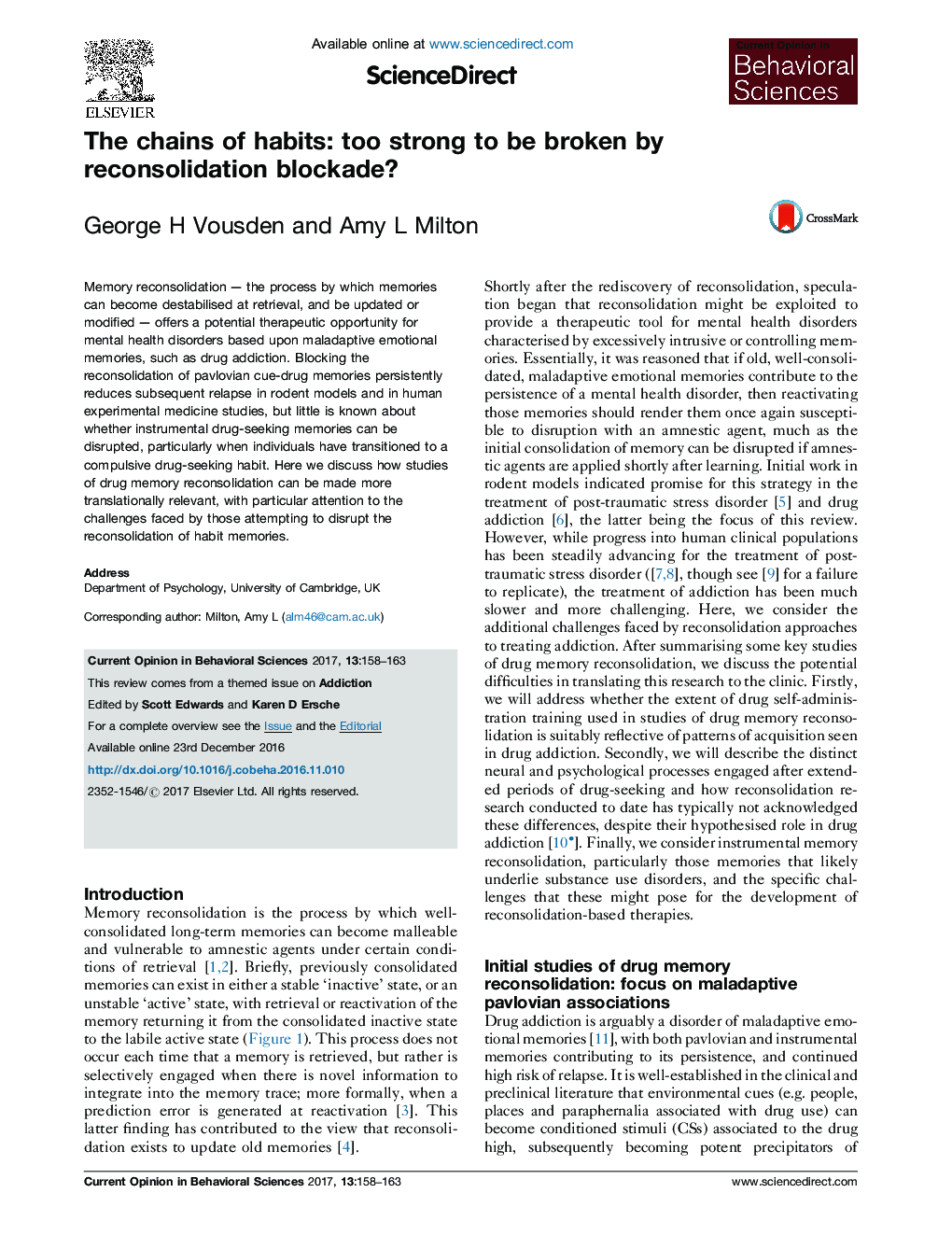| Article ID | Journal | Published Year | Pages | File Type |
|---|---|---|---|---|
| 6260334 | Current Opinion in Behavioral Sciences | 2017 | 6 Pages |
â¢Maladaptive memories underlie drug-seeking habits and lead to relapse in addiction.â¢Reconsolidation might be exploited to disrupt maladaptive memories.â¢Disrupting the reconsolidation of cue-drug memories reduces relapse.â¢Though debatable, instrumental memories likely do reconsolidate.â¢Habit memories may pose challenges for reconsolidation blockade therapies.
Memory reconsolidation - the process by which memories can become destabilised at retrieval, and be updated or modified - offers a potential therapeutic opportunity for mental health disorders based upon maladaptive emotional memories, such as drug addiction. Blocking the reconsolidation of pavlovian cue-drug memories persistently reduces subsequent relapse in rodent models and in human experimental medicine studies, but little is known about whether instrumental drug-seeking memories can be disrupted, particularly when individuals have transitioned to a compulsive drug-seeking habit. Here we discuss how studies of drug memory reconsolidation can be made more translationally relevant, with particular attention to the challenges faced by those attempting to disrupt the reconsolidation of habit memories.
